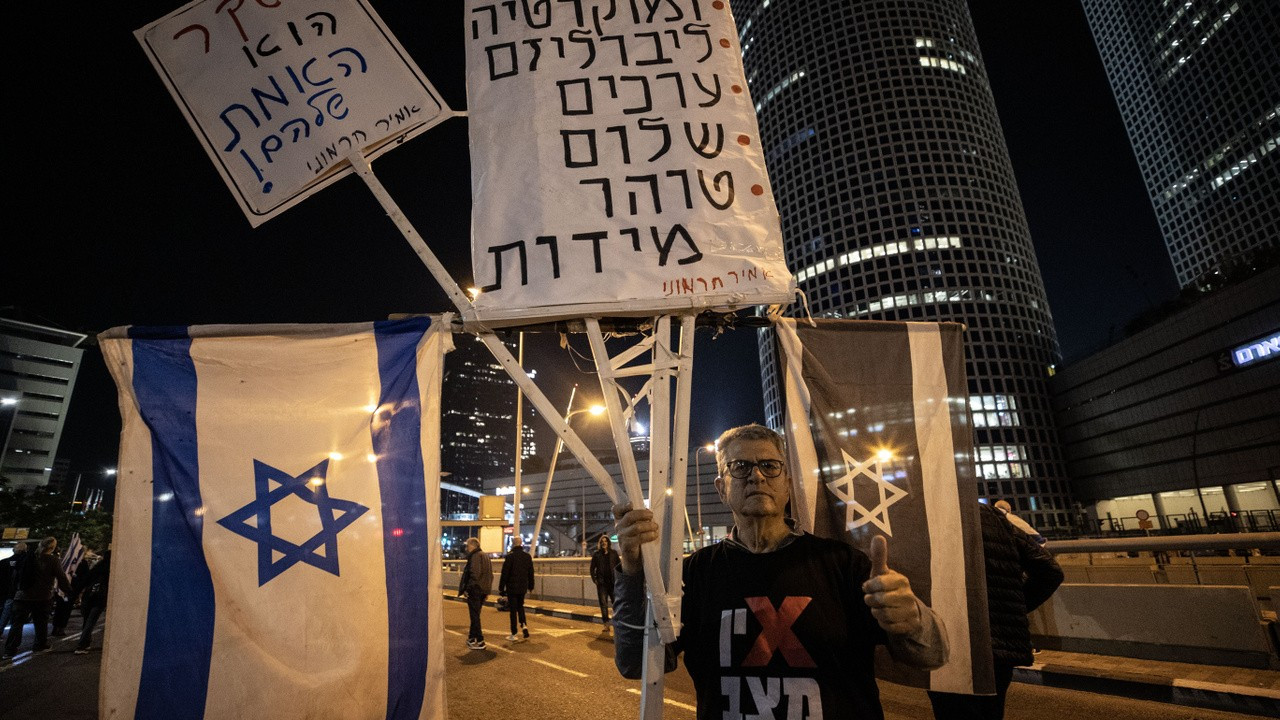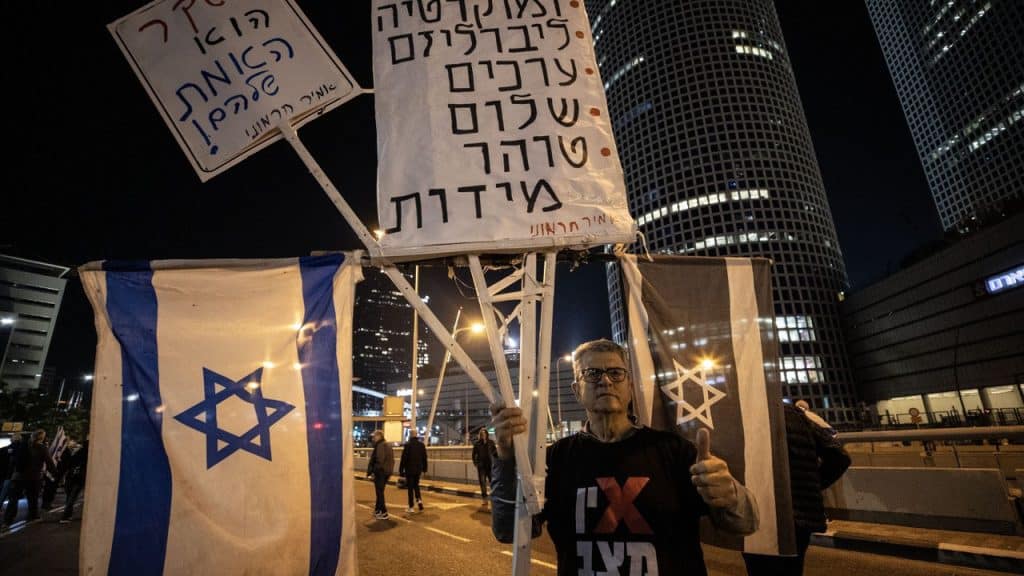
Tens of thousands of people took to the squares at the call of non-governmental organizations, lawyers and some groups from the high technology sector in Israel. Announcing that more than 100 thousand people participated in the demonstrations, the Israeli police took intense security measures on the roads leading to the squares in Tel Aviv. According to reports in the Israeli press, approximately 130,000 people in Tel Aviv, approximately 4,000 in West Jerusalem, and 6,000 in the northern city of Haifa took to the streets against the policies of the Netanyahu government. Announcing that he will participate in the demonstrations this week, Yair Lapid, leader of the main opposition party (There is a Future Party), said in his speech here, “We will protect our country and democracy. We will not give up until we win.” Thousands of demonstrators of all ages, gathered in Azrieli Square in Tel Aviv city centre, carried Israeli flags. The demonstrators accompanied the slogans “No to dictatorship” and “Democracy” on the stages set up in the square. Former members of the judiciary, literati and artists took the stage and criticized the policies of the Netanyahu government. Some demonstrators carried banners criticizing the government and Israeli flags, while others marched with torches. “Occupation in the West Bank happens every day” Academic Julia Levin (30), who participated in the demonstrations, said that the right-wing government tried to prevent the Supreme Court from protecting the rights of minorities, and that she participated in the demonstrations to react to this. Fine Arts student Noah Wiegenfeld (20) stated that he came to the protest because he thought that he would not be able to get his rights in Israel and that he would be discriminated against as a woman. Wiegenfeld said that he has European citizenship and “it upsets him to think that he will not live in Israel in the future.” “It happens every day. My friends are standing guard there at the age of 18, they dominate the people here to serve the agendas of right-wing politicians,” he said. Itay (63), who participated in the demonstrations, stated that he was worried about the government’s effort to take away the powers of the Supreme Court, and stated that he saw the gaining power of the right in Israel very problematic and went out to the streets to protest this. Answering the question about the impact of the far-right coalition in Israel on the Palestinian-Israeli conflict, Itay said that “the government makes promises but hopes the facts on the ground will stop the government”. Netanyahu government’s “judicial reform” Minister of Justice Yariv Levin announced on January 5 that they were planning a law that would limit the powers of the Supreme Court and reduce the influence of the judiciary on the selection of judges. The moves of the coalition government led by Netanyahu to transfer some of the powers of the judiciary to the Parliament caused tensions between the government and the Israeli judiciary, especially the Supreme Court. The Supreme Court of Israel, which serves as the highest judicial authority in the country, has the power to overturn the laws passed by the Assembly if they contradict the “fundamental laws” accepted as the draft Constitution. The Netanyahu government, in the judicial regulation it announced, stated that the Supreme Court would be deprived of its authority to overturn the laws passed by the Parliament. The power-judiciary crisis deepened when the Israeli Supreme Court ruled on January 18 that Shas leader Arya Deri, who assumed multiple ministerial positions in the Netanyahu government, could not be included in the cabinet “because he was convicted of tax crimes”.
A professional writer by day, a tech-nerd by night, with a love for all things money.

